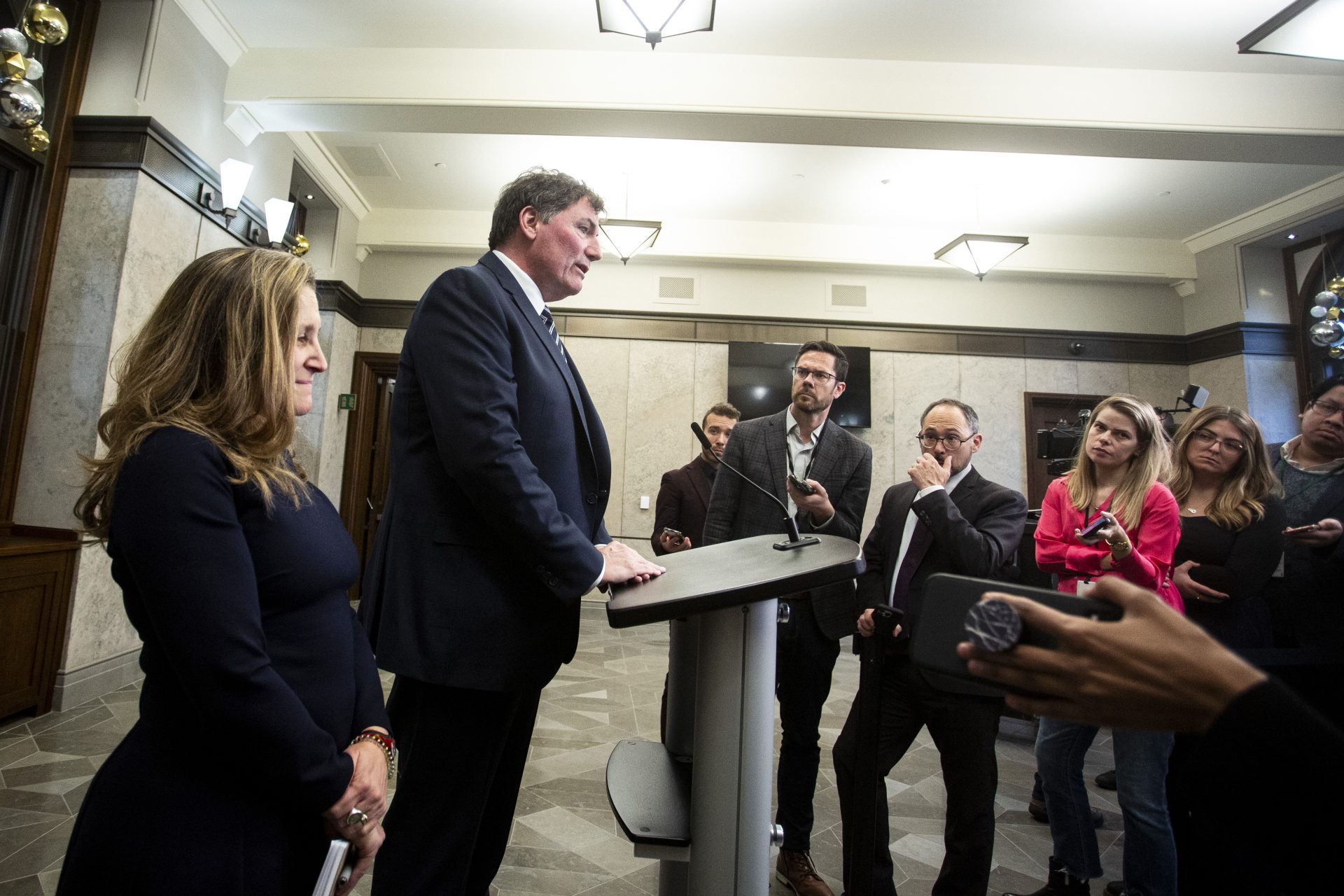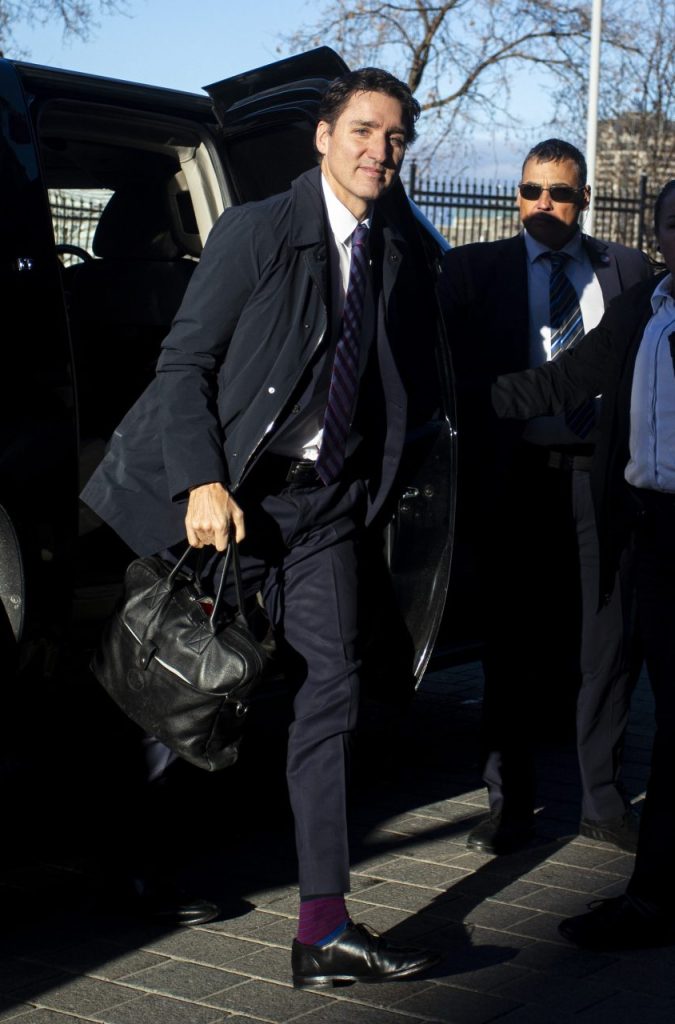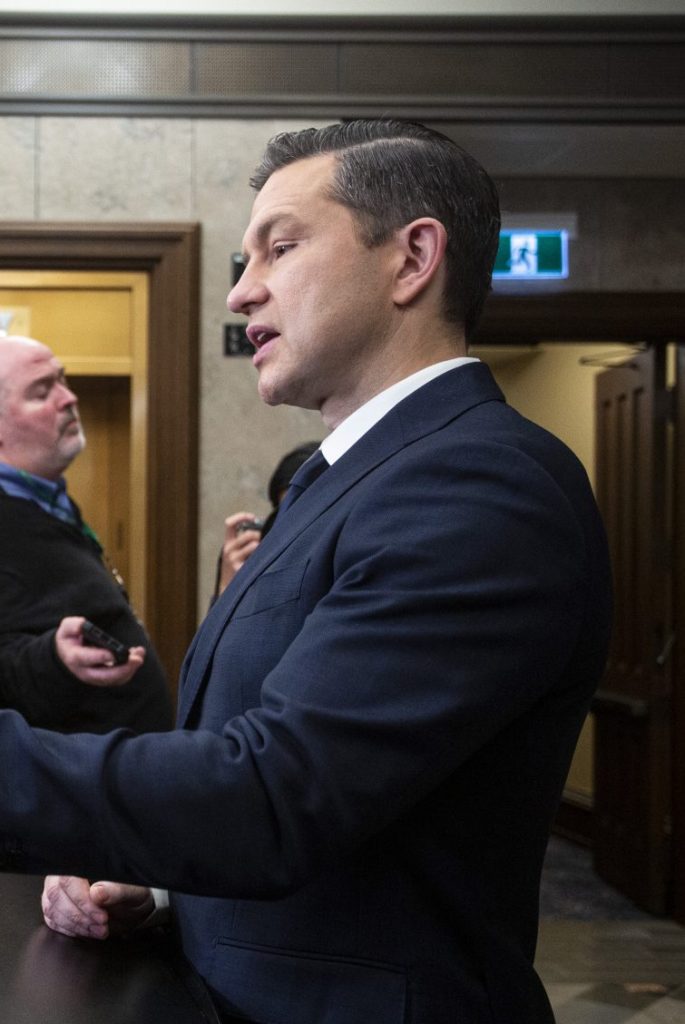House gridlock remains as Canada seeks to quickly respond to Trump tariff threats

The federal government has attempted to put on a united front following U.S. president-elect Donald Trump’s tariff threats, but has yet to explain how it could quickly respond to the incoming administration with Parliament still gridlocked by a filibuster.
“The reality is that we are a minority in Parliament. To move forward with measures to help Canadians with affordability, to move forward with measures for our border, we need the support of other political parties, other MPs,” said Deputy Prime Minister and Finance Minister Chrystia Freeland (University—Rosedale, Ont.) in French following Nov. 27’s virtual first ministers’ meeting on Trump’s tariff threats.

Trump posted on social media that he would impose a 25 per cent tariff on all products coming into the United States from Canada and Mexico over issues at the border—mainly due to his concerns over fentanyl trafficking and illegal border crossings.
In response to these proposed U.S. tariffs, Prime Minister Justin Trudeau (Papineau, Que.) told reporters on Nov. 26 that “putting aside partisanship” and taking the ‘Team Canada’ approach was important.
The next day, the prime minister convened a virtual first ministers’ meeting with premiers, federal ministers Freeland and Public Safety Minister Dominic LeBlanc (Beauséjour, N.B.), and RCMP Deputy Commissioner Mark Flynn to discuss the border and the Canada-U.S. trade relationship.
“We were very united. And we all really agreed that right now what Canada needs is for us to work together, that we need to be strong, we need to be smart, we need to be united,” said Freeland.
But these calls for unity come at a time when the House has been mostly gridlocked by a filibuster. Debate over the Conservative privilege motion related to the now-defunct Sustainable Development Technology Canada (SDTC) fund has stalled most legislative business since Sept. 26.
Seeking support for the border
The government has said it has discussed additional investments for the RCMP and the Canadian Border Services Agency (CBSA) to better secure the border, including new technologies, drones, helicopters, and additional human resources.
But when The Hill Times asked about the filibuster’s potential impact on those additional resources, LeBlanc said he didn’t want to speak on hypothetical spending bills.
“I don’t want to speak for the finance minister or hypothetical spending bills, but I would find it shocking that the opposition would not allow us to present legislation or spending plans that would increase the ability of Border Services Agency and the RCMP to do their work,” said LeBlanc following the virtual first ministers’ meeting on Nov. 27.
“I would find it absolutely shocking that the Conservatives, or the Bloc Québécois—the Bloc Québécois talk a lot about the border—I would think they would be enthusiastic supporters if the minister of finance were to come forward with additional investments,” added LeBlanc.

On Nov. 28, Conservative Leader Pierre Poilievre (Carleton, Ont.) did not explicitly say if he would support a new spending bill for the border when asked.
“Why haven’t they done it? They broke the border. Justin Trudeau broke the border. We didn’t have these problems before Justin Trudeau,” said Poilievre.
When it comes to the situation at the border, NDP MP Alexandre Boulerice (Rosemont-La Petite-Patrie, Que.) said previous Conservative cuts were to blame and that the governing Liberals didn’t fix them.
The NDP was also not explicit on if they would officially support a costed plan to boost resources at the border.
“At the time we denounced those border service cuts, so if today we can repair that, we will clearly look at it. And we will see how we will vote at that time, but we still don’t have the detailed plan yet,” said Boulerice in French on Nov. 28.
As for the Bloc, they said they’ve been demanding the government increase resources to the border for weeks.
“The Liberals have finally realized that they need to increase resources at the border. However, they are still incapable of telling us exactly how much, when, and how,” said Bloc House Leader Alain Therrien (La Prairie, Que.) in French during Question Period on Nov. 28.
While the government has been unable to assure Canadians that potential additional border supports wouldn’t be impacted by the ongoing filibuster, LeBlanc said “good news” was coming.
“So the good news is we’ll be able to talk about that in the coming weeks,” said LeBlanc on Nov. 27.
A pause to the paralysis
When it comes to getting things through the stalemate in the House, the Liberals did manage to find support from the NDP on a temporary tax holiday on Nov. 28.
There was a brief reprieve to the impasse as the House paused the filibuster to fast track a two-month GST/HST holiday bill.
This measure was originally meant to include a $250 cheque to Canadians who earned under $150,000 in 2023. But the NDP and the Bloc have criticized the government for excluding non-working seniors, students, and Canadians with disabilities from receiving that one-time cheque.
Unfortunately for the government, the pause to the filibuster was temporary.
Government House Leader Karina Gould (Burlington, Ont.) has said she is seeking more pauses to the filibuster in the coming days in order to fit in the remaining allocated opposition days of the year.
“I shared a unanimous consent proposal with the opposition parties that would pause the privilege debate so the Conservatives and the NDP could have their opposition days next week,” said Gould on Nov. 28. “I hope we can find agreement on this motion so that the House can debate and vote on the billions of dollars needed to fund the programs and services that Canadians rely on, depend on and expect us, all parliamentarians, to deliver for them into the future.”
But if the Liberals want to find a way to permanently end the Conservatives’ privilege motion debate, they will have to either cave into the Tories’ demands, or get support from the Bloc or NDP to invoke a closure motion.
“The Liberals have paralyzed Parliament by refusing to comply with an order to hand over evidence to the RCMP, forcing the Liberal Speaker to suspend all other government legislation. It is up to the Liberal Government to determine how long they remain in contempt of the order,” said Conservative House Leader Andrew Scheer (Regina-Qu’Appelle, Sask.) in a statement to The Hill Times.
The Liberals, however, lay the filibuster blame on the Conservatives and said that handing over all the documents would violate due process and police independence.
“It’s time for the Conservatives to drop these partisan games and that we can return to work for Canadians,” said Gould in French on Nov. 20.
But time for work is soon running out. The House is expected to rise for the holidays on Dec. 17.
With only two full sitting weeks left before the holiday break, the government also has to find time to pass a supply bill for supplementary estimates (B) and table a fall economic statement, amongst other things.
sduch@hilltimes.com
The Hill Times





 LICENSING
LICENSING PODCAST
PODCAST ALERTS
ALERTS













